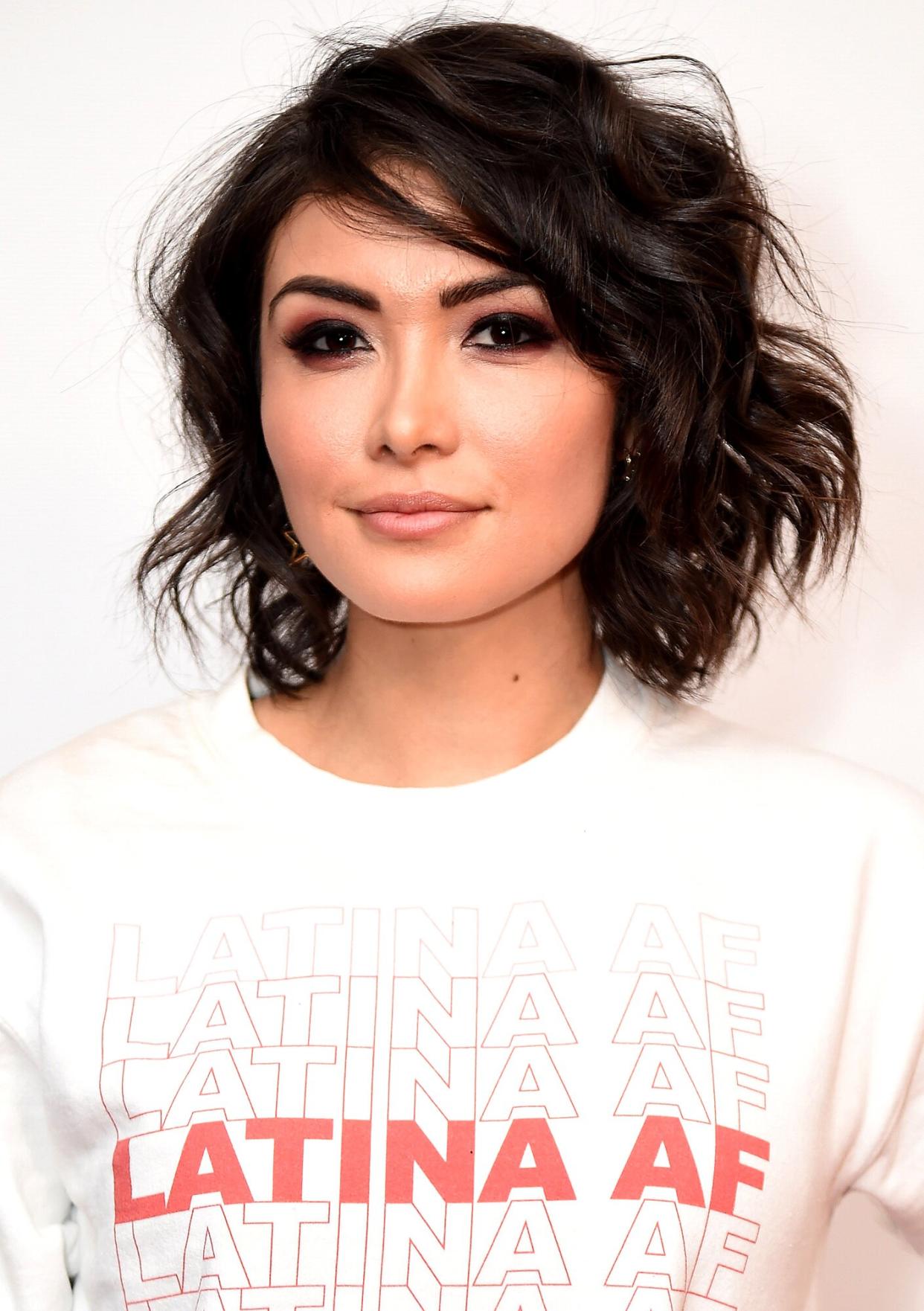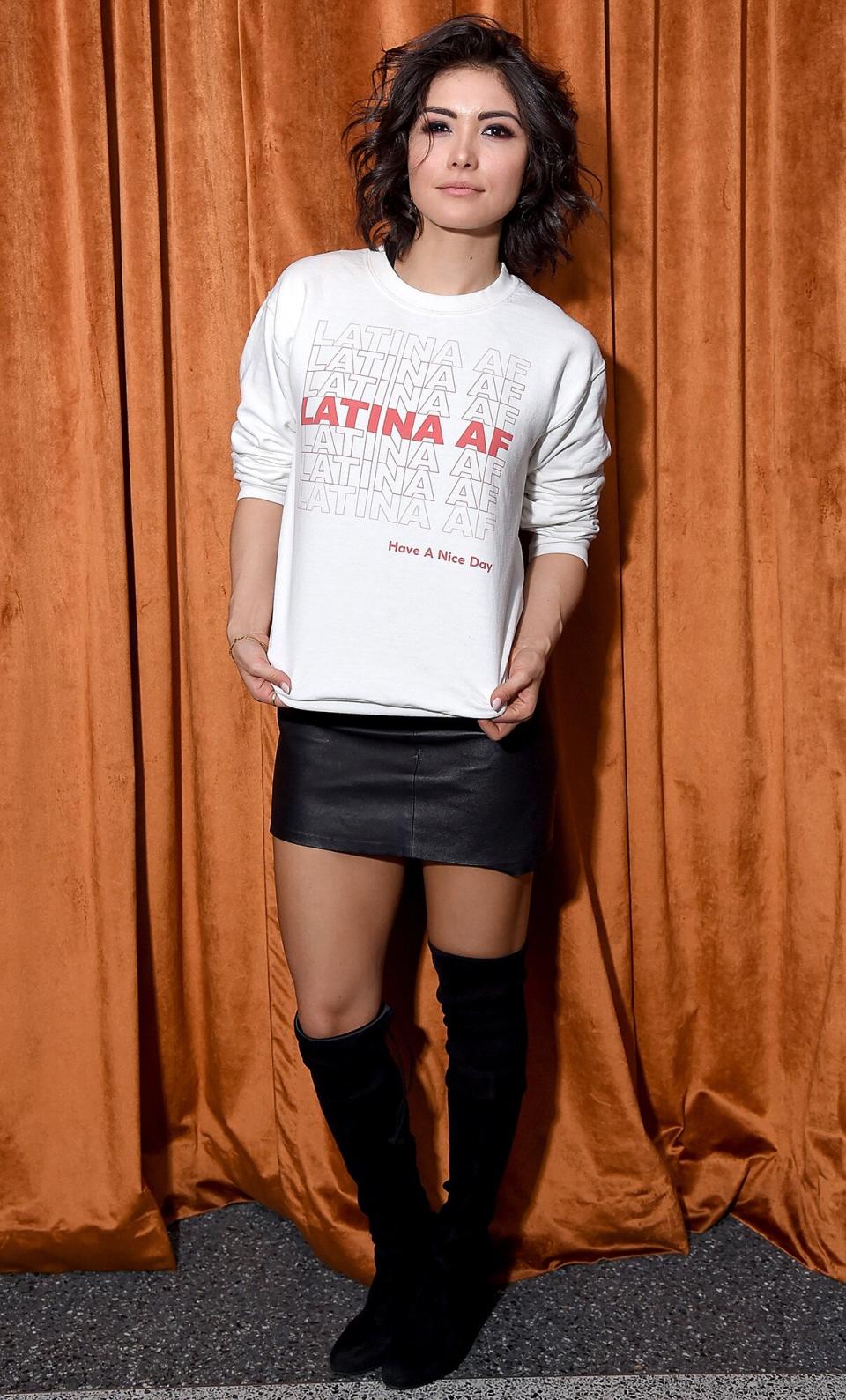Daniella Pineda on Mexican-American Roles in Hollywood: 'We Are Often Relegated to Obscurity'

- Oops!Something went wrong.Please try again later.
- Oops!Something went wrong.Please try again later.
Michael Loccisano/Getty Images for Tribeca Film Festival
Daniella Pineda didn't always want to be an actress — she was originally pursuing a career in screenwriting and producing before deciding to give it a try — but her time behind the scenes in Hollywood has informed the way she thinks about representation in the industry. From being told that she "doesn't look Mexican enough" while auditioning to desperately seeking "Mexican Ryan Gosling" for her next project, the actress, writer and producer says that it all boils down to a greater need for representation in media. You can see the actress in the next installment of Jurassic World in June 2022 and in the Netflix adaptation of Cowboy Debop as Faye Valentine (out on Nov. 19). This is her story, as told to PEOPLE during Hispanic Heritage Month.
I never wanted to be an actress. That was never my goal. But I have always loved movies. I never really saw myself represented on screen. Sure, there were the beautiful Latina women like Shakira and Jennifer Lopez whose posters I had on my walls in high school, but never anyone I really related to as the Mexican-American girl who loved comedy and horror movies.
Some of my favorites growing up were Edward James Olmos movies. Seeing him on screen was like seeing my tio, which felt close to being represented. From Zoot Suits to Stand and Deliver, he made movies that reminded me of my own family and people I knew. They also allowed people to dream of what could be or what stories could be told that often don't ever get told.
RELATED: Activist Ai-jen Poo Is Fighting for Domestic Workers: They're 'Invisible and Undervalued'
When I did finally start pursuing acting, I was really surprised to find how many casting directors told me (or gave feedback to my agents, who then told me) that I "didn't look Mexican enough." Or, "We want someone who looks more Mexican or seems more Mexican." It was such a huge eye roll. What the f--- does that mean? My initial reaction was, "Well, both of my parents are Mexican, so I don't really know how to solve that…"
It all comes down to representation. I think that people in general in the United States have a really acute idea of what Mexican identity is, and that's because we are so underrepresented. Latin America is a big place and it's an extremely diverse one. In the 21st century, it amazes me that people in Hollywood have such a narrow idea of what Mexicans are.

Michael Loccisano/Getty Images for 2018 Tribeca Film Festival
RELATED: Lawyer Recalls Winning His First Case in Same State Courts Where He Was Wrongfully Convicted
If I'm being totally transparent, I'm proud to be Hispanic, but I do feel a lot of frustration with Hispanic Heritage Month, especially as it relates to entertainment. I'm frustrated that on screen, in scripts and in casting we are often relegated to obscurity. I'm currently working on a film and we are looking for a lead. I'm looking for Mexican Ryan Gosling. And I can't find Mexican Ryan Gosling! And I know he is damn well out there, but Hollywood hasn't given Mexican Ryan Gosling a shot. When you're making a movie you want an actor who will interest investors and the people behind the scenes, and it is so frustrating to realize that no one has paved the way for him.
Bringing it back to Edward James Olmos: There's a scene in Selena where Olmos [playing Selena Quintanilla's dad, Abraham] is in the car with Selena and her brother A. B. He's explaining to them that it's so hard for Mexican-Americans because you're never Mexican enough and you're never American enough, and your Spanish is either too s----y or you get made fun of for speaking it at all. It's a shared experience amongst Mexican Americans, and as a third generation Mexican-American from California, I admit that I used to be very constricted by that complex.
I used to feel a little angry and, at times, self-conscious about it. And now I realize — as I've gotten older and have accepted myself and met more people — that I was fortunate to have the upbringing I did. It has really shaped who I am and it has shaped my identity in a lot of ways. It's something that I am really proud of. My sense of humor, the stories I like, the things that I love — they're not separate from my identity. I feel like I have been deeply influenced by being Latina. It's just me. It's made me who I am and it's made my life colorful and rich and funny. It's made my life a wonderful one.
That's why I want to see more of our stories. Even though at times it feels like Hollywood just wants to overlook them and keep on moving, I'm hopeful and optimistic that things will change. I can't discredit how far diversity has come, but there's always room for improvement.
Oh, and Mexican Ryan Gosling, wherever you are, I'm trying to find you.
— As told to Andrea Wurzburger

